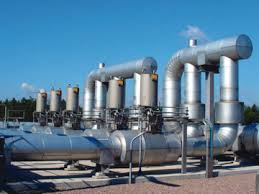DPR Begins Implementation of Gas Transportation Code
Posted on : Monday , 17th August 2015

The Department of Petroleum Resources (DPR) has stated that it had commenced the implementation of Nigeria Gas Transportation Network Code (NGTNC). This is coming as the Nigeria Gas Company (NGC) has hinted that gas supply to power plants would increase to 800 million standard cubit feet by the end of 2016.
The code NGTNC is a contractual framework between transporter (or network operator) and network users (known as shippers) that provides open competitive access to existing and future gas transportation infrastructure.
Under the code, every gas meant for domestic use either for power, petrochemical or industrial, will have a single entry and exit point to cut short the sharp practices prevalent in the current supply and distribution system.
Director of DPR, Mr. Mordecai Danteni Baba Ladan, who spoke at the just-concluded Society of Petroleum Engineers (SPE) 2015 Conference and Exhibition in Lagos said stakeholders in the sector had earlier met in Abuja to discuss on the ways to ensure smooth implementation of the code. Ladan who was represented by Mr. Gbenga Olufade said part of the implementation exercise of the NGTNC was the training of 20 personnel outside the country under the guidance of foreign partners.
Olufade added these steps would help eradicate lots of bottle neck issues in the system adding that gas flaring in the country might end in 2020 but adequate funding is required to achieve it.
In a related development, the Nigeria Gas Company has hinted at the SPE conference that gas supply to power plants will increase to 800 million standard cubit feet by the end of 2016.
The increased supply of gas to power plants according to the Managing Director of NGC, Mr. Dafe Sejebor, will be done on a willing-buyer-willing-seller basis.
The NGC has also urged the government to implement the $2.50 for the price of gas which will help gas supplier break even in the market.
The successes of increase gas supply to power plants, according to Sejebor also depended on adequate regulatory frame work on the commercial side of the sector. "Regulation has a major role to play for effective gas supply. Regulation should be looked at more on a commercial basis and we don't want to forget that time is of essence. Government should implement regulations on time,'" Sejebor said.


